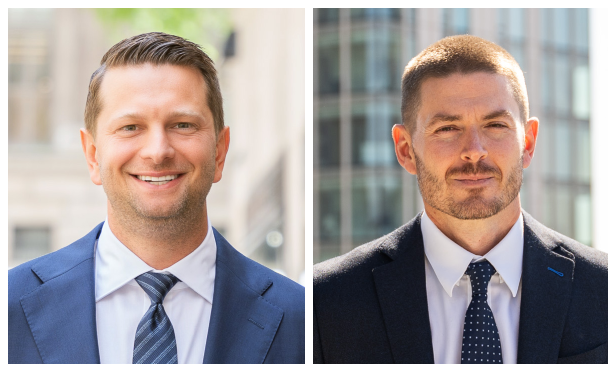SAN DIEGO—While not as optimistic as Arthur Laffer, who spoke before him during BMC's 21st Annual Real Estate Conference here last week, CBRE's Americas head of research Spencer Levy enumerated the many reasons he believes things are looking up economically for the country. Levy's presentation, “Curve Benders: How will the Recent Political, Economic and Secular Changes Change the Outlook for Commercial Real Estate and our Economy?”, provided a less rosy, more realistic view of where we stand economically and what the future holds.
As Levy has said in the past, he believes a recession is coming within the next two to three years and that this will be good for the economy as a “clearing event.” He said this is better than the stagnant growth we've been experiencing and would continue to experience without a recession.
Levy also said that sentiment matters more than fact because sentiment leads people to behave a certain way. However, “when looking at the microeconomy, the only thing that matters is jobs,” he said, and that is what Trump is promising. Automation, on the other hand, is fighting job growth.
Levy reiterated what he has previously said about the value of goods continuing to drop while the value of services rises. He believes our best bet is to focus more on services than on goods as a way to increase job growth and remain competitive on the world economic stage. “Jobs is the only thing that matters.”
He said that deregulation will not be very simulative over the short term, but what will help more is loosening the regulations over home loans. Going against the popular narrative that Millennials will remain in rental housing in urban areas, he said the Millennials are beginning to marry and have children and are moving into the suburbs because of the better schools in those areas.
With regard to trade, Levy said we're seeing a flood of capital from countries like Germany and Japan where there are negative interest rates. The single scarcity in the world of investing is high-yield investments—you just can't find them, he said.
Industrial real estate will be the most resilient asset class because of the need for warehouse space and last-mile delivery in a digital-shopping world, he predicted. Retail is also strong because it's been around for so long and we have not overbuilt. In discussing interest rates, Levy said the world bond market controls long-term rates and is the most powerful force in the universe.
As far as immigration and labor go, 150,000 new jobs were added in the last year, but there were a record number of job openings last month. Immigration restrictions will impact the low-skilled area, hospitality and class-B and -C multifamily rentals. When the largest occupiers were polled, they said the number-one factor bringing them to a specific area is the ability to attract talent. Still, we have the worst labor-force participation rate since the 1970s, said Levy, and disability filings have doubled since 1999.
While infrastructure is important to regional growth, Levy cautioned not to hang your hat on infrastructure because it's hard to do efficiently. He spoke of the “two Donald Trumps”—the public persona we all know and either love or hate, and the internal Donald Trump, who is a well-respected leader who will empower his people to do their jobs.
In discussing Millennials, Levy said the reasons for their choices are not motivated by status: they choose the gig economy not because it's cool, but because they saw what happened to their parents' full-time jobs during the recession. “It's life stage, not age, that matters. Millennials are just young human beings.”
The aging population, on the other hand, is a political quagmire, said Levy. Preserving Medicare and Social Security for a demographic that continues to live longer is difficult.
Ultimately, despite automation taking jobs, Levy said his is optimistic about the Americas for the next 10 to 20 years for four reasons: 1. energy independence, particularly the implications of shale oil; 2. talent—we have a great university system, although we must reduce the cost of a college education because it's sapping the middle class; 3. the strength of our military; and 4. we have the best values in the world.
SAN DIEGO—While not as optimistic as Arthur Laffer, who spoke before him during BMC's 21st Annual Real Estate Conference here last week, CBRE's Americas head of research Spencer Levy enumerated the many reasons he believes things are looking up economically for the country. Levy's presentation, “Curve Benders: How will the Recent Political, Economic and Secular Changes Change the Outlook for Commercial Real Estate and our Economy?”, provided a less rosy, more realistic view of where we stand economically and what the future holds.
As Levy has said in the past, he believes a recession is coming within the next two to three years and that this will be good for the economy as a “clearing event.” He said this is better than the stagnant growth we've been experiencing and would continue to experience without a recession.
Levy also said that sentiment matters more than fact because sentiment leads people to behave a certain way. However, “when looking at the microeconomy, the only thing that matters is jobs,” he said, and that is what Trump is promising. Automation, on the other hand, is fighting job growth.
Levy reiterated what he has previously said about the value of goods continuing to drop while the value of services rises. He believes our best bet is to focus more on services than on goods as a way to increase job growth and remain competitive on the world economic stage. “Jobs is the only thing that matters.”
He said that deregulation will not be very simulative over the short term, but what will help more is loosening the regulations over home loans. Going against the popular narrative that Millennials will remain in rental housing in urban areas, he said the Millennials are beginning to marry and have children and are moving into the suburbs because of the better schools in those areas.
With regard to trade, Levy said we're seeing a flood of capital from countries like Germany and Japan where there are negative interest rates. The single scarcity in the world of investing is high-yield investments—you just can't find them, he said.
Industrial real estate will be the most resilient asset class because of the need for warehouse space and last-mile delivery in a digital-shopping world, he predicted. Retail is also strong because it's been around for so long and we have not overbuilt. In discussing interest rates, Levy said the world bond market controls long-term rates and is the most powerful force in the universe.
As far as immigration and labor go, 150,000 new jobs were added in the last year, but there were a record number of job openings last month. Immigration restrictions will impact the low-skilled area, hospitality and class-B and -C multifamily rentals. When the largest occupiers were polled, they said the number-one factor bringing them to a specific area is the ability to attract talent. Still, we have the worst labor-force participation rate since the 1970s, said Levy, and disability filings have doubled since 1999.
While infrastructure is important to regional growth, Levy cautioned not to hang your hat on infrastructure because it's hard to do efficiently. He spoke of the “two Donald Trumps”—the public persona we all know and either love or hate, and the internal Donald Trump, who is a well-respected leader who will empower his people to do their jobs.
In discussing Millennials, Levy said the reasons for their choices are not motivated by status: they choose the gig economy not because it's cool, but because they saw what happened to their parents' full-time jobs during the recession. “It's life stage, not age, that matters. Millennials are just young human beings.”
The aging population, on the other hand, is a political quagmire, said Levy. Preserving Medicare and Social Security for a demographic that continues to live longer is difficult.
Ultimately, despite automation taking jobs, Levy said his is optimistic about the Americas for the next 10 to 20 years for four reasons: 1. energy independence, particularly the implications of shale oil; 2. talent—we have a great university system, although we must reduce the cost of a college education because it's sapping the middle class; 3. the strength of our military; and 4. we have the best values in the world.
Want to continue reading?
Become a Free ALM Digital Reader.
Once you are an ALM Digital Member, you’ll receive:
- Breaking commercial real estate news and analysis, on-site and via our newsletters and custom alerts
- Educational webcasts, white papers, and ebooks from industry thought leaders
- Critical coverage of the property casualty insurance and financial advisory markets on our other ALM sites, PropertyCasualty360 and ThinkAdvisor
Already have an account? Sign In Now
*May exclude premium content© 2024 ALM Global, LLC, All Rights Reserved. Request academic re-use from www.copyright.com. All other uses, submit a request to [email protected]. For more information visit Asset & Logo Licensing.









